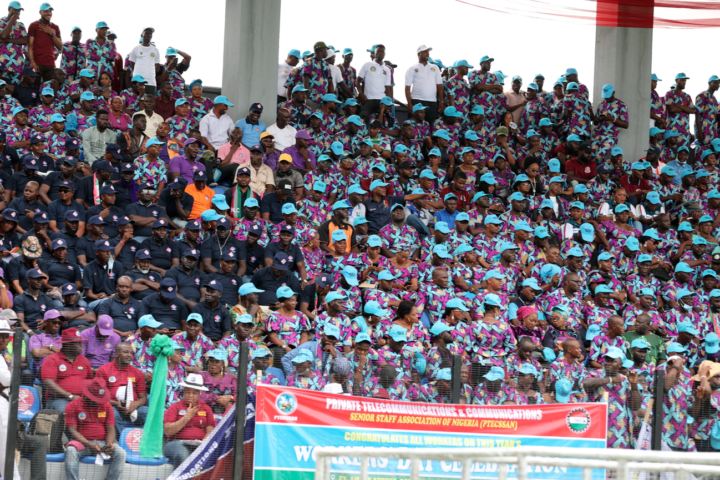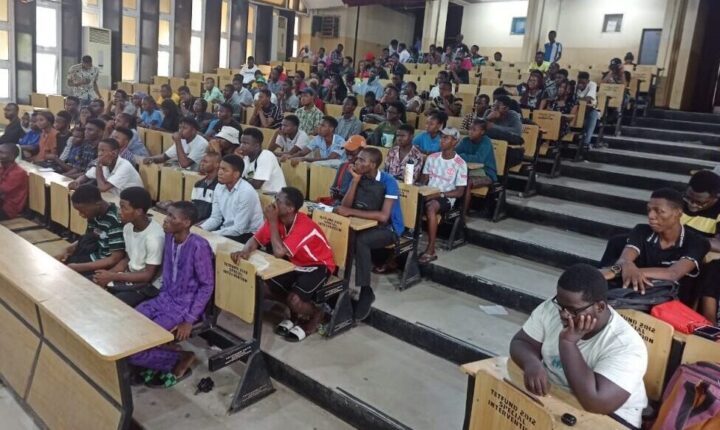BY SHAMSU GUJUNGU
There are still arguments on the process of societal change. Some think that change should start from the followers (bottom-up approach), while others are of the view that the change should start from the leaders and trickle down to the followers. I opined that such a change should begin from the leaders.
The people known to initiate such changes or reforms in many societies are these intellectuals, particularly academicians across all fora. Sadly, today, ours are busy with their lives, barely surviving and trying to make ends meet—suffering from poor remuneration, poor working conditions, and poor motivation. One needs to be stable first before thinking of their neighbour or their immediate society. Championing a revolution, transformation, or societal change is multifactorial, but the fulcrum remains financial stimulus. Albeit, no person or union has the energy to initiate or maintain any movement in the current realities.
In Nigeria today, many have given up hope for development or transformation. Poverty is taking its toll and weaponising itself on the people. Everybody is looking for what to eat; nobody is thinking of the country, the population, or the society. Development and real change are becoming an illusion. Moral values no longer exist, lives are lost, status is downgraded, and the respected groups of society are now reduced to beggars.
Advertisement
Nobody considers them important anymore. Nobody wants to be a teacher, doctor, nurse, or lecturer anymore, and nobody wants to join the security forces. Everybody is thinking of how to make money and how to be rich. When we were growing up, we envied our teachers, looked up to them, emulated them, and wanted to be like them; that is no longer the story today. People no longer care about the country.
Unless the living standard of the working class is improved, change may be difficult in this country. If people’s earnings can’t satisfy their basic demands of feeding, housing, transport, and schooling for their children, they will be constantly scrambling and looking for alternatives to make ends meet. Regrettably, even though the salary can’t cater to basic needs, in Nigeria today, getting your salary as due is becoming difficult.
The current policies and economic realities have technically effaced the middle class, thereby pushing the country to the reach of only a few and the poor majority, of which the lecturers, teachers, doctors, nurses, and other workers belong.
Advertisement
The attention of the working class will constantly be divided in searching for income alternatives to meet their basic needs, including menial jobs, business, and farming.
In preserving the focus and attention of the working class and in maintaining professional and institutional efficiencies, the Fifth Schedule, Part I, Paragraph 2(b) of the 1999 Constitution of the Federal Republic of Nigeria (as amended) explicitly prohibits civil servants from engaging in private business, trade, or professional work, except for farming—and even that must not interfere with official duties.
After prohibiting workers from engaging in other private activities that interfere with their duties as civil servants, the Nigerian Constitution recognizes the right of workers to earn a wage sufficient to meet their basic needs. Specifically, Section 16(2)(d) mandates that “the State shall direct its policy towards ensuring… a reasonable national minimum living wage,” while Section 17(3)(b) states that “conditions of work are just and humane”.
Until the government rethinks and ties the earnings of civil servants to the national inflation and value of the currency, we’ll continue to witness inefficiencies, bribery, corruption, and kickbacks in institutions, schools, hospitals, or agencies by the poorly paid workers in attempts to get extra income to make ends meet. These poorly motivated workers no longer care about the system or the functionality of institutions, hospitals, or schools; they end up extorting the systems to meet their pay deficits.
Advertisement
A professor in a university earning $3,000 in 2012 now earns only $300 at a time when the price of everything has skyrocketed. How do you expect him to survive without cheating the system or looking for alternatives?
The solution to the dysfunctionality of Nigerian critical institutions lies not in empowering the EFCC or ICPC but in improving the living standard of the civil servants to be able to meet their basic needs. The civil servants may be few compared to the general population of the country, but the irony is they are the managers of the country’s mitochondrium, which are its integral institutions. A worker will only think about the viability and sustainability of the system, institutions, or the country when he’s not having problems with food, housing, or transport—as it was obtainable in the past.
Nigeria must abandon all expensive projects and spending, channel its energy, and salvage the system.
We must have a rethink and improve the living standard of civil servants.
Advertisement
Gujungu can be contacted via [email protected]
Advertisement
Views expressed by contributors are strictly personal and not of TheCable.











